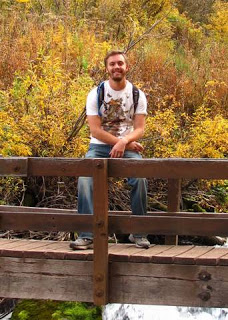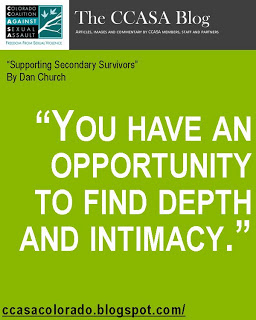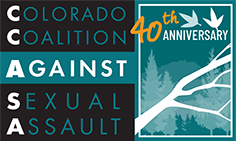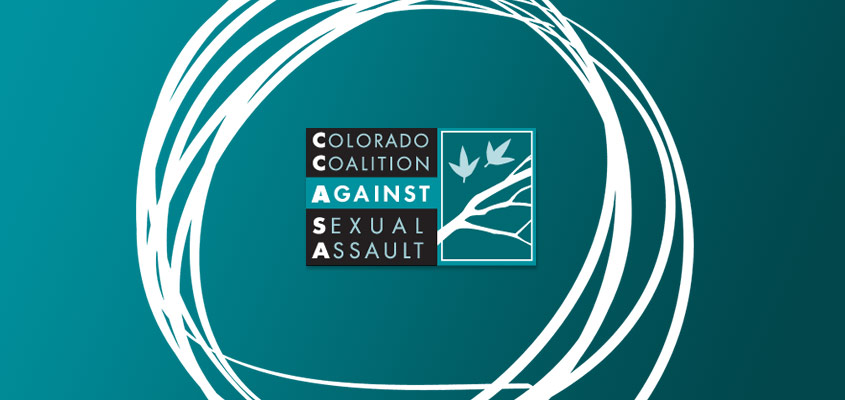By Dan Church, CCASA Blogger
Sometimes when I’m interviewing people to serve on our crisis hotline I will ask them what they imagine it being like. Most picture a call from a woman who has just been assaulted, who doesn’t know what to do, who is scared. I tell them that we definitely do get calls like that, but we also get a lot of calls from people who have gotten through that initial period of and still need a lot of help. We get calls from survivors who were assaulted anywhere from five minutes ago to fifty years ago. We get calls from friends, family, and partners who don’t know how to help their loved one or even how to help themselves, and I want to take a moment to talk about them.

October is Intimate Partner Violence Awareness Month, but I also think it is a worthy time to highlight and stress the importance and challenge of being a supportive and caring partner. Generally, the term intimate partnerspeaks about someone in a committed sexual relationship, but I also want to talk to those friends and family members partnering with a survivor through this intimate and powerful journey. Secondary survivor is often how these loved ones are referred to, a term that inevitably makes me think of second-hand smoking. The second-hand smoker knows someone who smokes and is being impacted by it. They may have never smoked in their life, but they can still be directly affected. If they live close enough with the smoker they will exhibit many of the same symptoms as if they themselves had been the one smoking.
Often people being affected by second-hand smoke may get upset with the smoker, begging them to quit for their own health and the health of people around them, and this too happens with secondary survivors. They see the pain their partner is experiencing and this “thing” that is controlling and changing their life, so they say, “Stop it! Quit letting this ruin your life, and quit letting it ruin mine while you’re at it”. I don’t want to say this is an appropriate response, but I do want to say that it is understandable. A secondary survivor didn’t ask for this to happen, doesn’t know how to “handle” things, and wants their old life back – just like the person who was assaulted. It is terrifying, lonely, and crushing to see a loved one slipping away, and it is important to recognize that.

Luckily, just like with someone who has been sexually assaulted, these feelings and experiences are completely valid, but they don’t need to be the end of the story. Experiencing trauma will change you, but it doesn’t have to control you and that change doesn’t have to be for the worse. You may need to relearn how to get along with or relate to this person you love, but you also have an opportunity to find depth and intimacy in ways you may have never imagined. You may need your own help, learning how to help your loved one and learning how you can cope too. It isn’t selfish; it’s making sure you are taken care of so that you can be the help you want to be. You don’t have to have all of the right answers or know what to say, you just have to be there. You just have to be a partner. If you are a partner, friend, or family member in need of support, please contact the Colorado Coalition Against Sexual Assault (CCASA) at info@ccasa.org or 303-839-9999 for resources in your community. Nationally, you can contact the RAINN Hotline at 1-800-656-HOPE or www.rainn.org.
Dan Church is 28 and the Volunteer Coordinator for the Rape Assistance and Awareness Program in Denver, CO. He oversees their 24 Hour Hotline and Hospital Advocacy Program.

